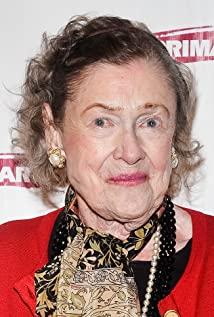A graduate who was confused about his future was sitting on the plane returning home with depression and anxiety in his eyes.
Just such a look, even without any supplementary scenes, is enough to make the audience feel immersed.
When the male protagonist returned home, his family invited relatives and friends to hold a party for him, but he felt an unprecedented sense of depression.
Everyone is looking forward to his life, only he is indifferent, he doesn't even know how to imagine.
The male protagonist's confusion covered him like a vacuum hood. He felt that it was hard to breathe, he felt at a loss, and at the same time, he felt that this was a transparent cage, and the people around him couldn't see it.
It was one such summer that Mrs. Robinson came into his life.
He is seduced by Mrs. Robinson into an indecent affair.
In this way, in this summer, he swims and cheats. But he still didn't know what to do.
When the male protagonist can't refuse Mrs. Robinson in "choice" (yes, even if he can't refuse, it is also a choice of his own), he is eager to be controlled by an authority, in order to escape his hopeless and goalless , a suffocating life.
With the help of a woman's clear desire and will for him, he temporarily got a breath of oxygen to breathe.
He doesn't crave sex, he doesn't crave a body, or rather, he wants an answer more than a craving for sex.
He had been wanting to chat with Mrs. Robinson.
Mrs. Robinson is no longer interested in life, she has given up the perception of real life, and is only immersed in the barren joy of playing with others and playing with herself.
But the male protagonist is not.
Finally, at the strong request of the male protagonist, there was a brief conversation between them, including Mrs. Robinson's reluctance.
In this brief conversation, the male protagonist quickly re-felt the existence of real life and his own desire for real life.
He found that the woman around him also had a history, a story, a link with others, a past of being deceived and hurt, and a helpless life choice.
And all this excites him.
Mrs. Robinson was clearly painfully aware of this.
Mrs. Robinson also realized that her daughter, Elaine, the male protagonist's peer, even if she only appeared in the conversation, the sense of authenticity she brought, including the male protagonist's interest in her, far exceeded her own.
The male protagonist may not realize it yet, but Mrs. Robinson does.
So Mrs. Robinson sternly asked the male protagonist not to date Elaine. At the same time, she can't tell the male protagonist why.
Because the reason is, we shouldn't be doing these things now.
If you go to face the real life, you should be planning your future now, pursuing girls of the same age, to fulfill the most natural desires of your age, rather than maintaining an underground relationship with a married wife.
This relationship, which does not include the position of the male protagonist's parents and Mr. Robinson's position, is like duckweed, without any real-world support.
Its rupture was doomed from the beginning, but the intervention of language connected the reality and made this deliberately ignored fact reappear.
Elaine, who appears in Mrs. Robinson's Prohibition, is a "forbidden" symbol for the male protagonist. Only what is forbidden by the authority he truly believes will be truly attractive to him. Elaine is such an existence.
Although for the male lead, Elaine was just annoying at first as a disruptor to his otherwise muddled but stable relationship with Mrs. Robinson.
But when he first met Elaine, the realism of his more real-life peers and that natural attraction of being a forbidden thing overlapped in Elaine.
The male protagonist is irresistibly in love with Elaine.
He abandoned Mrs Robinson without hesitation.
Unfortunately, his relationship with Mrs Robinson soon came to light with Elaine.
At this point in the film, it seems that all the lines in front are converging into a single point, and the scene where Mrs. Robinson is leaning weakly against the wall at the end of the corridor is a symbol of this constriction. Things have developed to such a climax of conflict, and at the same time A desperate situation. The audiovisual experience is very strong and shocking.
But how should this point be re-distributed, re-concluded, until the end, I also felt very confused at that moment, and I also felt that I didn't know how to imagine the direction of the plot.
Elaine left home to go to school, and the male protagonist chased after him.
From the moment the male protagonist packed his bags and decided to go to Berkeley, he may have felt that he had once again gained a "reason" to act.
But it seems to me that it was from that moment that he completely lost his ground.
A person who loses all kinds of desires and pursuits and loses his belief in any authority requires a long process and requires constant interaction with the environment in the environment in which he lives. When these things happen, people may not be aware of them at all, and even if they are aware of them, it is difficult to complete resistance on the individual.
At the moment when the male protagonist graduated, the collapse and disintegration of all kinds of beliefs had almost been completed.
A symbol of the male protagonist's sanity is his indifference.
Even when he was having an affair with Mrs. Robinson, he still resisted with indifference. Because he also knew it wasn't what he really wanted. Before the appearance of his ideal option, he is willing to maintain a vacuum state of will, which shows that he essentially has expectations that he can make a choice that truly conforms to his heart.
But when he chose Elaine, he had given up that expectation, because he himself didn't know why he fell in love with Elaine, he didn't even know her. But long tormented by the vacuum of belief, he finally sold his soul to a gratuitous passion—that, in his opinion, to Elaine.
The male protagonist felt Elaine's strong attraction to him, an irresistible impulse.
But at the same time, the male protagonist has given up the rational inspection of this passion. As long as he calms down and thinks about it, he will find that he does not love Elaine at all. When he looked at Elaine, it was as if there was a mirror between him and Elaine. He couldn't even see Elaine himself, all he saw was his own desire for passion.
So this part feels really muddy.
If the male protagonist seemed to be in a transparent glass cover before, the male protagonist here seems to have fallen into a quagmire, entering a state of turbidity and difficulty breathing.
What surprised me was Elaine's response to this feeling.
Perhaps too little attention was paid to Elaine, resulting in a lack of rational support for her actions. At one point I even expected Elaine to have a purpose in life to reject this depraved, total abandonment of reason and real-life feelings. But since the male protagonist is in such a state, why isn't Elaine of the same age also troubled by confusion. (It can only be understood this way
When the male protagonist ran all the way to grab the marriage, the film handled the absurd atmosphere, and you could feel the playful attitude of the film itself towards this play.
Until the male protagonist succeeded in escaping the marriage with Elaine, and the two of them recovered from ecstasy on the bus, and soon recovered their confused eyes, I was finally able to breathe again.
If the director treats this marriage escape as a relief from the confused state, then I will never be able to forgive this kind of treatment for the rest of my life, and one star will be too much. Fortunately, at least back to the confused state.
In my opinion, deceiving myself and letting myself submit to my false feelings for Elaine is a greater evil and a more terrifying state of existence than confusion.
What is interesting to think about is that although it is such a bloody film, the protagonists in it, except Mr. Robinson, seem to have no feelings about ethics, nor have they entered any ethical dilemmas. They only focus on what they "want". Picking up the troublesome issue of ethics again, I wonder if it can enrich the male protagonist's life.
The audiovisual language of the film is a textbook example. The dialogue between Mrs. Robinson and the male protagonist is really sharp and precise. The stream of consciousness lens also has a sense of fit that is highly integrated between form and content. The transmission of the spiritual world does not need to be interpreted with abstract concepts, it is the intuitive impact that the picture brings to people, which is amazing.
View more about The Graduate reviews











